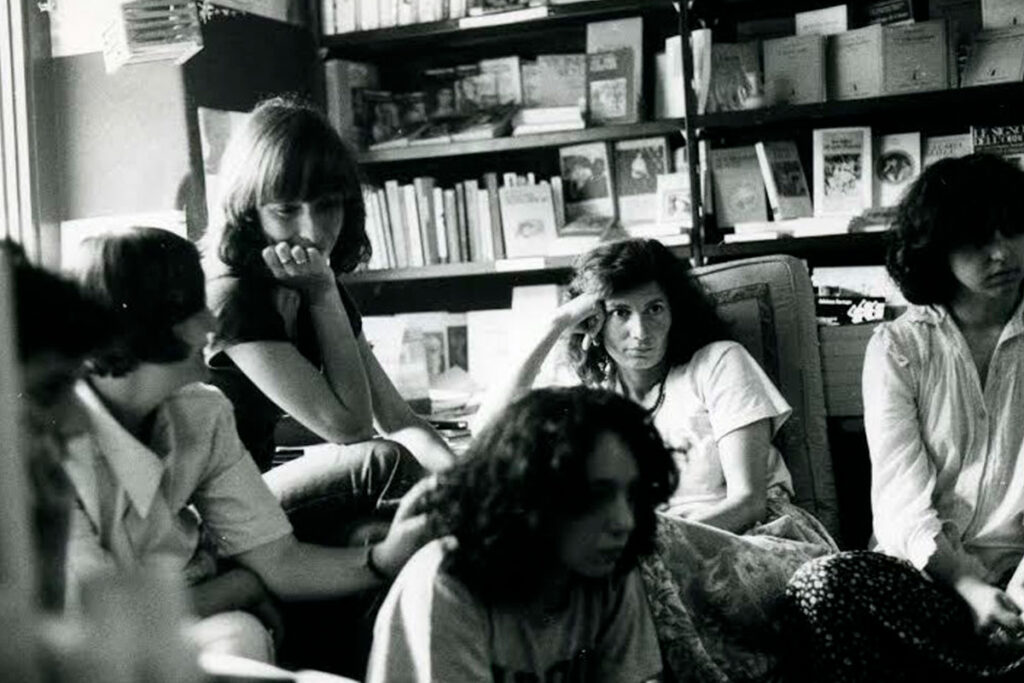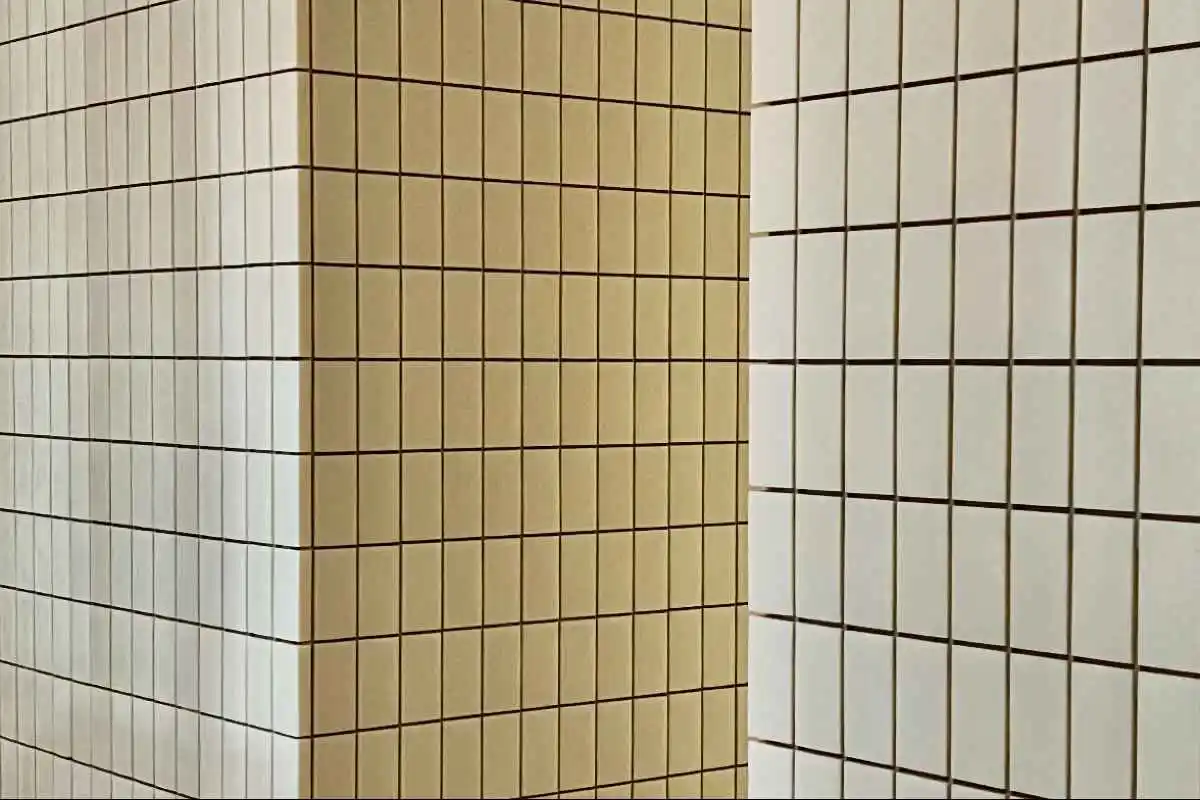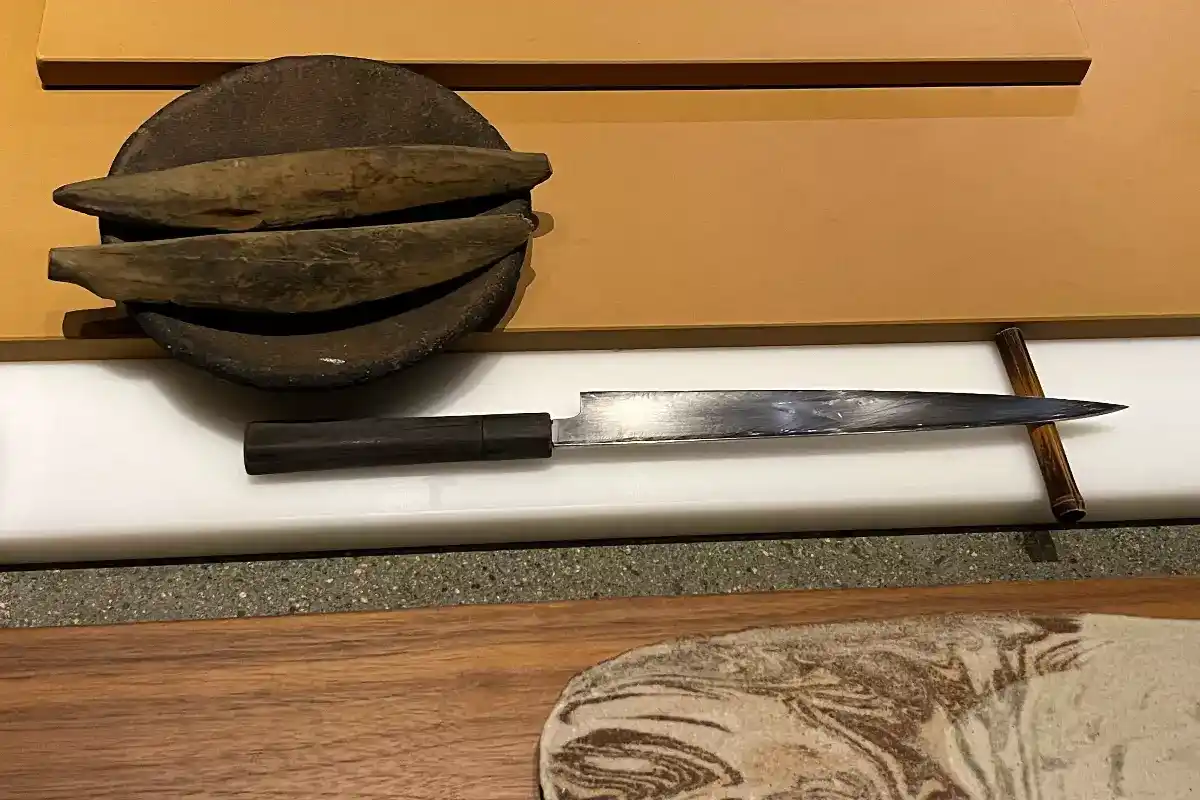Libreria delle Donne, Milan: where theories of feminist philosophy were born: interview with Giorgia Baschirotto and Laura Giordano, of Libreria delle Donne
Libreria delle Donne – the history comes across
Inspired by the Librairie des Femmes in Paris founded by Antoinette Fouque and linked to the french group Politique et Psychanalyse, the aim was to create a space to take up the history of women and their publications and bring them to light: «Libreria delle Donne is more than a bookstore is a place where femminist politics are practiced. When you are there, you enter a dimension that cannot be described: there is a polyphony of voices and bodies that draw your attention throward different things, new things most of the time. It’a place of encounters and discoveries» says Giorgia Baschirotto.
A female hub able to empower their voices
«The charter was signed by about 15 people: the precise number of women is not clear, but among them were Luisa Muraro and Lia Cigarini» adds Laura Giordano. «Both are still active and are among those who helped create the thinking behind the Libreria delle Donne. Other names include Giordana Masotto: she was the first women’s bookseller and a regular visitor. In this first document they tell that they were working to create Libreria delle Donne during a meeting. The founders actually had relations with the women’s bookshop in Paris, which had been formed about a couple of years earlier: they decided to do the same thing in the center of Milan so that the bookshop would be easily visible and accessible. All the documentation concerning the history of the bookshop is kept in the archives of the Badaracco Foundation, edited by Laura Milani. Initially, the greatest difficulties were those related to the search for funds. In this case, the role that art has played in the history of the library is fundamental.
The role of art – a symbolic inventions of feminism
All the documentation concerning the history of the bookshop is kept in the archives of the Badaracco Foundation, edited by Laura Milani. Initially, the greatest difficulties were those related to the search for funds. In this case, the role that art has played in the history of the Libreria is fundamental: Lea Vergine had in fact created a hub of artists – with the name of Carla Accardi in it, for example – who put their works on sale so that the proceeds could contribute to the establishment of the Libreria Art has always played a role for us: Art has always played a role for us: we have the so-called Quarta Vetrina in the shop, a window that was (especially before the pandemic) given out monthly to artists who wanted to exhibit their works. This was the starting point for the project Vetrine di Libertà, which was presented at the Fabbrica Del Vapore in 2019, where all the artworks were brought together in a single exhibition». Reflection on art and the role of art in our lives is one of the great symbolic inventions of feminism, now considered the international movement that has had influence on the art of today since the late 1960s.
From the 1970s to the present day
«The presence of different generations is something that has always existed in the Libreria:
it is an aspect that characterizes the Libreria delle Donne, compared to other libraries that exist or have existed in Europe» Giorgia notes. «What holds this invisible thread is the interest in politics of women and in some of the concept that characterizes different feminism, such as Otherness explored by Luce Irgay and Maternal Symbolic developed by Luisa Muraro, for example».
«If we look at L’ordine Simbolico della Madre, 1991 – appeared in English tranalation The symbolic oreder of the mother in 2018 – a text by Luisa Muraro, the author says that the mother is the person who teaches us language. Through language we then go on to describe the world. We describe the world starting from ourselves, changing order: male symbolic order, social symbolic order, mother symbolic order. In this case, the mother can be your mother, but she is also all the women who came before her, in a discourse of female genealogy. From there, everything that happens in the Libreria weaves its way through time, without ever being able to say that anything is outdated or antiquated. Everything that happens in the bookshop is interwoven over time: there are cornerstones of feminist politics that are in the bookstore, which are there because they have always been there and will always remain», says Laura.
«You decide your order. It is an order that moves from desire, the desire that changes your world, the vision of reality starting from you, from your thought, which you then translate into all the places you go. You enter in relation with this vision that is told to you and that you make your own, and then you take it elsewhere and it is from there that you change things. This is the recognition of the knowledge of others».
Political and philosophical
Laura Giordano says that «Libreria delle Donne is both a political and philosophical place: Luisa Muraro is a philosopher who is part of the bookshop, and this makes her the focus of philosophical discourse in this place. Through these questions she builds with us what then becomes feminist politics. Politics understood as that which is born and moves from relationships and from what we learn and take elsewhere, and has nothing to do with party politics».
«Generating ideas from experience, from practice, is an epistemological revolution, as Luisa Murano points out. Writing is putting our experience into words and transmitting it. Through writing, the self reveals and defines itself, and in so doing occupies its place in the world and carves its mark in the human narrative: writing thus becomes a political act.» points Giorgia. Via Dogana, a quarterly issued by the Libreria delle Donne, was first published in 1991. It interprets the repercussions of current political affairs on women’s emancipation and freedom of expression.
«The desire to put our thoughts in writing was channeled into our magazine, Via Dogana -the name of the bookshop’s historic location, which is now at 29 Via Pietro Calvi. The magazine was born in 1981, followed by three different editions: the first was a series of collective writings where texts from other books were taken up and discussed in order to shed light on what had already been said by other women. Then this version of Via Dogana ended, and a second one arrived: it was the 1991. It was decided to stop working on texts that had already been written and published and to work on personal articles. The aim was to make current affairs speak through the words of the participants: each participant spoke about current affairs and signed their own text. While the previous editions were all printed, number three went online. Together with Via Dogana, we continue with Sottosopra, born in 1976. Sottosopra is a special creation: The editorial team changes every time, depending on the team of the issue. Each number is burn out of the need to say something about a current topic, therefore there is not a specific editorial calendar.
The Milanese edit from the Seventies
For many people today, talking about feminist bookshops no longer makes sense In the 1970s, Milan hosted feminist hubs that introduced Italy to key feminist texts for the first time. The city can be considered the site of the earliest feminist theoretical production in Italy: this was partly due to the fact that Milan-based publishing houses produced the first translations of some feminist texts. For many people today, talking about feminist bookshops no longer makes sense.
«These kinds of places need to exist, because they give a history to women’s literature. Libreria delle Donne is relevant for those who attend this place, those who contribute to what is done, but also women or people who pass by every now and then and discover new texts: it is a place born to produce thoughts, to create relationships, to maintain an exchange; an exchange that anyway, implicates the necessity of having a physical place. This allows us to live right in the moment and to absorb even those that are real problems and to live them. It is also a place where the problems found outside, above all in work, but also perhaps in the relationship with men, can be discussed and there is the possibility of interfacing with those who live them in the same way or in a different way. On the other hand, it is necessary to say that the women’s bookshop, precisely as a political reality, identified problems thirty years ago that are now being discussed. Feminist bookshops are not just bookshops where books are sold, they have an identity: they have a political objective, which is understood as a policy that moves from relationships, from what you learn, make available and take elsewhere and is different from party politics, which is another policy and is called second politics». Says Laura.
Precious books
«The Precious books is a category that you can find on our website that refers to a whole series of books that each woman taking part of the library has indicated as relevant to her. Inside there is a book that is precious for the bookshop: ‘Non credere di avere dei diritti’, written and signed by the Libreria delle Donne says Laura. The book, translated into english with the title ‘Sexual difference. Theory of SocialSymbolic Practice’, is a collective book which narrates the origin of the women’s movement from 1966 to 1986 in Milan and the establishment of the Italian women’s bookstore collective as a place for political thought.
«Many women, while reading this book, found themselves in it and came to the bookshop and participated in everything that is the work of the bookshop. The Libreria delle Donne is not an easy place, as the bookshop involves being there, and you have to give yourself with passion and dedication. It’s a pity that many people still see the bookshop as some kind of distant place: sometimes you are afraid to walk in a place that has so much knowledge inside, but in reality each of us, when we bring our own experience, contributes to the construction of that knowledge and is therefore fundamental for us. Here there is also a dimension of listening, in my opinion, in which you can insert yourself».
Bookshops, places of social identity
«There are feminist publishing houses with whom we collaborate: some are more historical, like Vanda Edizioni and L’enciclopedia Delle Donne–which are militant feminist publishing houses–while others are younger, creative, and lively, like Mimesis. In Milan there are many book shops that have their own identity: the Antigone bookshop for example, or the Libreria dei Ragazzi in Via Tadino. In the publishing industry there has certainly been a stalemate due to the pandemic, but more generally, there is a tendency towards digitalisation that is now before everyone’s eyes and with which we have to reckon. On the other hand, there is at the same time a new desire in the cultural sphere linked to publishing and present in artistic practices, to want to rediscover the dimension of the body, to want to relate to the person. Bookshops like ours or other small realities need a will, people need to decide that if they can choose between having a book delivered to their home or coming to the bookshop to pick it up, they choose to come to the bookshop. There is an effort on our part to create a shift, discussing together what is often the nature of new platforms, bringing people to think and then, to come and meet each other» – Laura Giordano.
«Some publisher as well as brands are riding the famminist wave now, feminism is everywhere and it has almost become a abused term. The point is always to stay critical and question everything we see in front of us, and not be defined by it.» – GIorgia Baschirotto.
Libreria delle Donne
Via Pietro Calvi, 29, 20129 Milano. Libreria delle Donne was founded in Milan in October 1975 by a group of women who came together in the Sibilla Aleramo cooperative. Among them was Lia Cigarini, Elena Medi, Giordana Masotto and Luisa Muraro. Since the mid-1980s, the bookshop has been one of the most significant points of reference for Italian and international feminism.




















